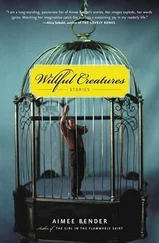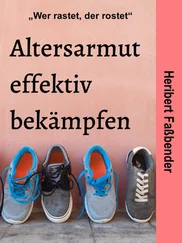We all took our work seriously. Lester assumed a dignified, alert expression when he gazed at the X-ray machine, always locating the object that needed to be removed. Joanne was efficient, precise at patdowns. Estelle was good at helping people organize their possessions in the plastic bins. When I worked with them, I secretly tried to find the parts that seemed to have been sent to me. Lester’s hair. I watched the way he smoothed his hand over it, the way my father had done when he thought about his clients. Deanne’s walk. I waved her over, sometimes, when I did not need her, so I could watch her heels hit the floor, hard, the way my sister’s did when she needed to tell me something. And Harvey and Fernando and Joanne, each harboring their own treasures — Harvey pointed the way my father did when he was excited; Fernando’s mouth resembled my sister’s; Joanne let out a cackling laugh that my mother sometimes had. I didn’t love them, but I sort of did, if love is being mesmerized by the mere fact of others, and the way they trick you into believing that they contain the other people you have known. It was the sort of love I owned now, and I just lived with it, though I tried to remember what it was to have the love others did. I had those moments of jealousy, looking over the passengers streaming through the gateways — those passengers, strapped into their seats with the luxury of boredom and desire, waiting for their beverage service, believing that they would walk down the Jetway into the rest of their lives.
I went to work, balanced on my life, this tiny platform. Sometimes, heading to work, I felt like I was going to slide off of it, sparked by a small sight — a gardenia bush like the one that bloomed outside of our house, a blue Mercury driving by. But this usually faded when I entered the terminal, when I took my place at the podium, when my gaze was supposed to locate any hint of mishap in the world.
ONE DAY, JOANNE READ US ALL A MEMO; BUDGET CUTS WOULD NOW go into effect. We were not all necessary to preserving national security. One of us would be let go.
Joanne read this to us; it just had been emailed to ALL STAFF LOWER ATLANTIC REGION .
“What did they mean, go? To another airport?”
“No, go. They don’t need us. One of us.”
I looked at them. Joanne cleared her throat. Fernando tapped his foot. A harsh deodorant smell came off Deanne.
“How are they going to decide?”
“I don’t know.”
“Then what?”
“One of us is let go.”
While she was reading this, the second email came: Lester would decide. He had started here a year before the rest of us, and he had, as we all knew, stopped that guy with the steak knife in his sneakers the month before. He had six weeks, and Regional would abide by what he said.
I found it difficult to breathe. Would someone protest? No one did. We were weirdly passive in the face of this announcement. Our dark blue uniforms, so official, so comforting in their way, suddenly seemed nostalgic, with the flimsiness of Halloween costumes; Joanne fingered her collar with a tender gesture that I had never seen before.
“Everyone, stations!” said Joanne, and we took our posts.
WE WENT OUT TO RUBY TUESDAY A COUPLE TIMES, BUT NOW IT WAS different. Lester sat in the middle of the red booth, and everyone observed what he ordered. A crab-dip appetizer. Some mozzarella sticks. We all looked at one another. Joanne complimented him on his appetizer choice. She leaned toward him, asparkle with admiration.
“Crab dip. Good choice. I always loved its creamy texture.”
“Thanks, hon,” Lester said, dipping in a piece of garlic bread.
Suddenly, everyone was ordering crab dip, even those who, I knew, hated it. Several bowls of crab dip sat there, mostly untouched. I ordered one too, immediately. Everyone seemed both tender and monstrous. All anyone wanted was to stay, to be viewed as worthy of inclusion. It seemed the deepest desire, to be acknowledged, to be deemed worthy of remaining here, with the rest of us, and we sat around the table, eyeing the crab dip, hoping.
I noticed that the crew was acting a little differently now. The fact of our potential vanishing from this group freed everyone to reveal other elements of themselves. Now I noticed the things I didn’t want to remember about my family. Joanne suddenly switched from a brisk, efficient worker to a compulsive flatterer, something my sister tended to do. Deanne became a flirt, which my mother did with cashiers at the market when she was bored, and Fernando sat up taller and claimed the mozzarella sticks in a bossy way, the way my father made grand, bullish gestures when he was annoyed with all of us. My heart thrummed with panic. The ground felt like sky.
Perhaps I should be more flexible. I knew this was just a job that gave us money, and we could walk out of the terminal to become something else — a waitress, a manager at Subway, a security guard at a bank. But this was where I had wanted to be. It seemed absurdly arbitrary. Why did anyone decide to hitch his or her feelings to anything? Why one place more than another? All of the crew members wore amiable expressions, smiled at one another, dipped garlic bread into their crab dip, and looked away.
I imagined my coworkers taking my arms and escorting me out of the airport; I could feel their grip on my skin. I sat with them around the table and wondered— What would happen if I were escorted out of the airport? What would happen to me?
A PASSENGER I HAD NEVER SEEN BEFORE CAME THROUGH THE SECURITY line. He handed me his driver’s license. He was handsome in a bland way. “John Comet,” I said, and then I looked at the name again.
He laughed. “That is my name,” he said. He was a slight, wiry man, and he was wearing a dark blue suit. It was a little limp around the collar, like an old flower petal. He had very white teeth. He had lush, uncombed brown hair, as though his normal mode of transport was running through wind. I noticed him first because he looked me in the eye. Not like a passenger, but a person. Just looking at who I was.
“Where are you going today?”
“Cincinnati.”
“For what purpose?”
“Business.”
“What kind of business?”
This was not a necessary question; I did not know why I was asking it. But he glanced at my badge, absorbed it, and answered.
“I am involved in the marketing of custom luggage.”
“Oh,” I said. He paused. I handed him back his ID.
The others usually picked up their boarding passes and hustled on, removing their shoes, lunging for the plastic bins. He did not move. He stood there, waiting.
“Sir?”
“What do people say when you ask them, for what purpose?”
A question. I regarded him.
“What do you mean?” I asked.
He cleared his throat. “Where do people say they’re going to go?”
“People like to visit other people. Or vacations,” I said. “They like to get away from their home. And conventions. There are conventions for everything.”
He stood, his foot softly tapping as I spoke.
“Don’t be scared,” he said.
I looked at him.
“Why do you think I am?” I asked.
He smiled. It was normally the sort of comment that should have gotten him hauled over for questioning.
“I don’t know,” he said. “I’m just a sales guy. I know things sometimes.”
He was right. I was scared. But somehow his asking made it fade for a moment.
“Are you scared, Mr. Comet?” I asked.
He shoulder twitched, just slightly. He was.
“No,” he said. “Just travelling.”
There was a sorrow in his voice that sounded exactly like I felt. I was surrounded by liars. He had nothing to gain by my fear. We were two planets floating, separate, in the blue air. Oddly, that stirred me.
Читать дальше












